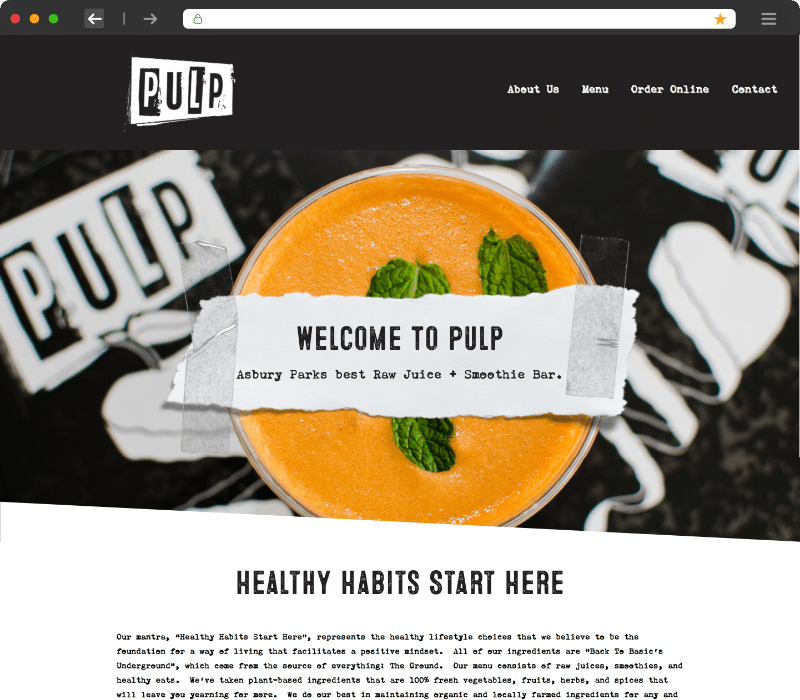Introduction
In today’s fast-paced digital landscape, having a robust digital marketing strategy is not just an option; it’s a necessity. Whether you’re a small business owner or part of a large corporation, the way you market your products or services online can make or break your success. You might be wondering, "Where do I even start?" Well, don't sweat it! In this comprehensive guide, we're going to walk you through everything you need to know about constructing an effective digital marketing strategy from scratch.
Building a Robust Digital Marketing Strategy from Scratch
When we talk about building a robust digital marketing strategy from scratch, we’re looking at multiple elements that come together to form a cohesive plan aimed at reaching your target audience effectively. The beauty of digital marketing lies in its versatility and potential for measurable results. So, let’s dive right into the nitty-gritty!
Understanding Your Audience
Who Are You Trying to Reach?
Before you can create any effective strategy, it’s crucial to identify who your target audience is. Ask yourself:
- What are their interests? Where do they hang out online? What problems are they trying to solve?
Creating detailed buyer personas can help you visualize and understand your clients better. Use surveys, social media insights, and analytics tools to gather data.
Why Is Knowing Your Audience Important?
Knowing your audience allows you to tailor your messaging and offerings specifically for them. This personalization increases engagement rates and improves conversion rates significantly. When you speak directly to the needs of your audience, they’re more likely to take action—whether that means signing up for your newsletter or making a purchase.
Setting Clear Goals
What Do You Want to Achieve?
Every good digital marketing strategy starts with well-defined goals. These should be SMART:

- Specific Measurable Achievable Relevant Time-bound
For instance, instead of saying “I want more traffic,” turn that into “I want to increase website traffic by 30% in the next three months.” This clarity gives you direction.
How Will You Measure Success?
Using analytics tools like Google Analytics will help track your progress towards these goals. Set up key performance indicators (KPIs) that align with each goal so you can gauge success along the way.
Choosing Your Digital Marketing Channels
Which Platforms Should You Use?
Not all channels are created equal. Depending on where your audience spends their time, you'll want to focus on specific platforms:
- Social Media: Facebook, Instagram, LinkedIn Email Marketing: Newsletters and targeted campaigns Content Marketing: Blogs and articles SEO: Leveraging search engines for organic traffic
Each platform has its unique strengths and weaknesses; knowing which ones resonate with your audience is crucial.
Crafting Compelling Content
What Makes Good Content?
Content is king! But not just any content—quality content that provides value. Think about:
- Educational articles Engaging videos Eye-catching infographics
A solid content strategy includes diverse formats tailored for different platforms.
How Often Should You Publish?
Consistency is key in building trust with your audience. Create an editorial calendar that outlines when and where you'll publish content so you're never scrambling last minute.
Web Design Matters: Creating an Engaging User Experience
digital marketingHow Does Web Design Impact Your Strategy?
Your website acts as the face of your brand online. A user-friendly design encourages visitors to explore more deeply rather than bouncing away out of frustration.
What Elements Contribute to Good Web Design?
Key components include:
Responsive design (mobile-friendly) Fast loading speed Intuitive navigationThese factors not only enhance user experience but also positively impact SEO rankings as well.
Search Engine Optimization (SEO): The Backbone of Digital Marketing
What Is SEO and Why Is It Important?
Search Engine Optimization (SEO) involves optimizing your website so it ranks higher on search engine results pages (SERPs). This visibility leads directly to increased website conversions.
Local SEO: Targeting Your Community
If you're running a local business, focusing on local SEO strategies will help consumers find you easily when searching for services nearby.
Key Local SEO Tactics:
Optimize Google My Business listing. Gather reviews. Ensure NAP consistency (Name, Address, Phone Number).Effective Use of Keywords in Your Digital Marketing Strategy
How Do Keywords Work in SEO?
Keywords are phrases that users type into search engines when looking for information or services relevant to their needs.
Tips for Effective Keyword Usage:
Conduct keyword research using tools like Google Keyword Planner. Incorporate long-tail keywords for targeted traffic. Utilize keywords naturally within content without overstuffing.Leveraging Google Maps SEO for Local Businesses
Why Google Maps Matters
Being visible on Google Maps can significantly increase foot traffic to your physical store by making it easier for locals to find you.
Strategies:
Optimize listings with accurate information. Encourage customer reviews. Use location-based keywords effectively in descriptions.Developing an Email Marketing Campaign That Works
Building an Email List
An email list is one of the most valuable assets in digital marketing; it allows direct communication with interested customers.
Strategies Include:
Offering lead magnets like eBooks or discounts. Segmenting lists based on behaviors and preferences. Regularly cleaning up inactive subscribers.Conversion Rate Optimization (CRO)
What Is CRO and Why Is It Essential?
Conversion Rate Optimization refers to the systematic process of increasing the percentage of website visitors who take desired actions such as filling out forms or making purchases.
Tactics for Successful CRO:
A/B Testing landing pages. Simplifying forms. Utilizing clear calls-to-action (CTAs).FAQs About Building a Robust Digital Marketing Strategy
What are the key components of a digital marketing strategy?
The main components include understanding your audience, setting clear objectives, choosing appropriate channels, creating compelling content, implementing SEO strategies, leveraging web design principles, conducting email campaigns, and optimizing conversions.
How long does it take to see results from my digital marketing efforts?

Is social media essential for my business's online presence?
While social media isn’t mandatory for every business model, it's increasingly becoming vital due to its ability to engage audiences directly and drive traffic back toward websites through sharing valuable content.
4.* Can I measure ROI from my digital marketing efforts?**
Absolutely! By tracking metrics such as customer acquisition cost relative against sales generated through those channels web design will give insights into what works best financially speaking!
5.* Do I need technical skills for effective web design optimization ?**
No! Many user-friendly platforms exist today allowing non-tech individuals create visually appealing websites without extensive coding knowledge!
6.* What’s more important—SEO or paid ads ?**
Both have their pros & cons; ideally combining both approaches yield optimal results since organic traffic takes time while paid avenues provide immediate visibility!
Conclusion
Building a robust digital marketing strategy from scratch may seem daunting at first glance but breaking it down into manageable chunks makes everything attainable! From understanding who you're targeting right down until crafting compelling content—every step matters immensely towards achieving success in today's competitive marketplace!
So grab those tools mentioned throughout this article & get started today because remember—the earlier you begin implementing these strategies into practice…the sooner results will follow suit! Happy marketing!